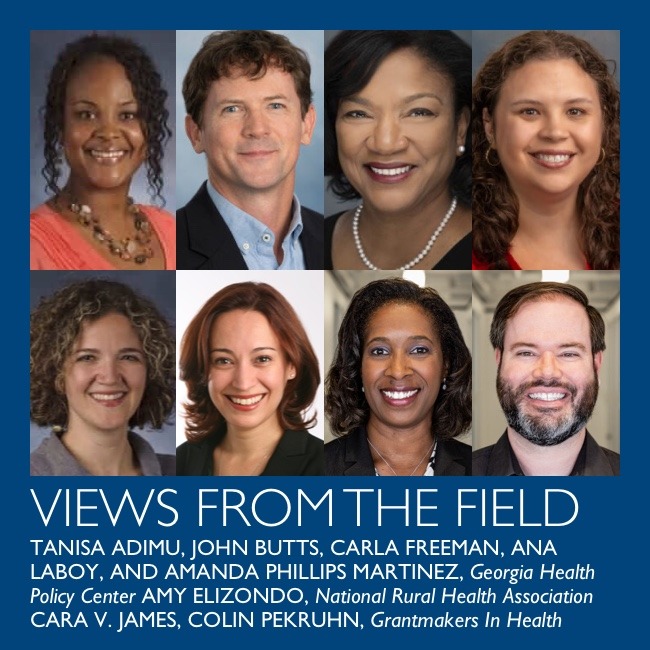Reimagining Rural Health and Well-being
To inform positive change, Grantmakers in Health (GIH) and the National Rural Health Association (NRHA) are partnering to reimagine a unified vision for health and well-being in rural America. The Georgia Health Policy Center (GHPC) was engaged to conduct a landscape analysis and facilitate listening sessions with rural health stakeholders at the local, state, and national levels.
GIH Health Policy Update Newsletter
An Exclusive Resource for Funding Partners
The Health Policy Update is a newsletter produced in collaboration with Leavitt Partnersi and Trust for America’s Health. Drawing on GIH’s policy priorities outlined in our policy agenda and our strategic objective of increasing our policy and advocacy presence, the Health Policy Update provides GIH Funding Partners with a range of federal health policy news.
Philanthropy @ Work – Transitions – October 2023
The latest on transitions from the field.
Philanthropy @ Work – Grants and Programs – October 2023
The latest on grants and programs from the field.
Grantmakers In Aging and Grantmakers In Health Announce Partnership to Support the 2024 Reauthorization of the Older Americans Act
Grantmakers In Aging (GIA) and Grantmakers In Health (GIH) are pleased to announce a new collaboration aimed at mobilizing funders in support of the 2024 reauthorization of the Older Americans Act (OAA).
Grantmakers In Health Seeks Nominations for 2024 Leadership and Advocacy Awards
Grantmakers In Health is pleased to announce a call for nominations for both its Andy Hyman Award for Advocacy and Terrance Keenan Leadership Award in Health Philanthropy.







